(888) 750-7284
9a.m. – 8p.m. ET, Mon-Fri
(888) 750-7284 9a.m. – 8p.m. ET, Mon-Fri
Find an Office Location
Scottsdale, Arizona
Los Angeles, California
San Diego, California
San Francisco, California
Walnut Creek, California
Boulder, Colorado
Denver, Colorado
D.C. Metro Area (Alexandria)
D.C. Metro Area (Potomac)
Naples, Florida
Winter Park, Florida
Atlanta, Georgia
Boston, Massachusetts
Reno, Nevada
Englewood, New Jersey
New York, New York
Philadelphia Metro Area
Providence, Rhode Island
Austin, Texas
Bellevue, Washington
Seattle, Washington
Jackson, Wyoming
Scottsdale, Arizona
Los Angeles, California
San Diego, California
San Francisco, California
Walnut Creek, California
Boulder, Colorado
Denver, Colorado
D.C. Metro Area (Alexandria)
D.C. Metro Area (Potomac)
Naples, Florida
Winter Park, Florida
Atlanta, Georgia
Boston, Massachusetts
Reno, Nevada
Englewood, New Jersey
New York, New York
Philadelphia Metro Area
Providence, Rhode Island
Austin, Texas
Bellevue, Washington
Seattle, Washington
Jackson, Wyoming
© 2025 Pathstone. All Rights Reserved
















